
Iain Dale 10am - 1pm
10 July 2023, 10:44 | Updated: 10 July 2023, 12:31
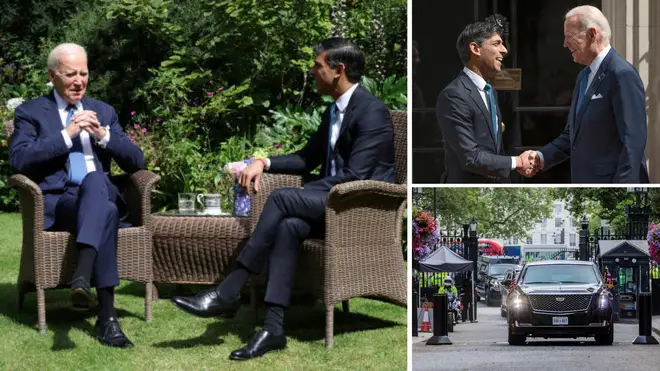
US president Joe Biden met Rishi Sunak at Downing Street this morning as he looked to strengthen ties with the UK with talks about the war in Ukraine.
At around 10.40am today Mr Biden's limo nicknamed 'The Beast' and his presidential motorcade arrived at Downing Street for the meeting.
At the meeting, Mr Biden described the US-UK relationship as “rock solid”.
After speaking with the PM, Mr Biden will travel to Windsor Castle to meet King Charles for talks on climate change - a topic which they both believe to be an existential threat to the planet.
“The president has huge respect for the king’s commitment on the climate issue in particular. He has been a clarion voice on this issue,” White House national security adviser Jake Sullivan told reporters aboard Air Force One on Sunday.
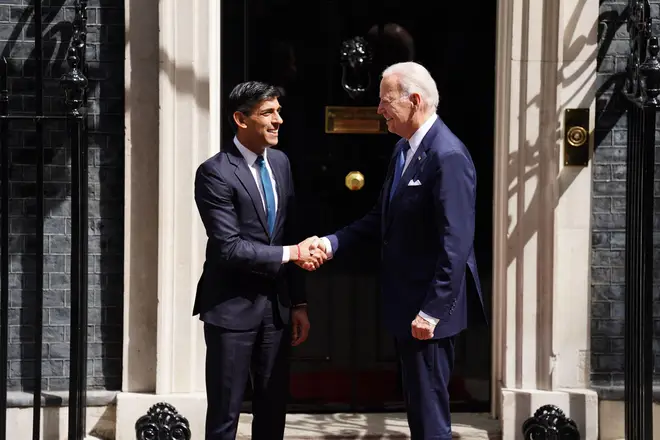
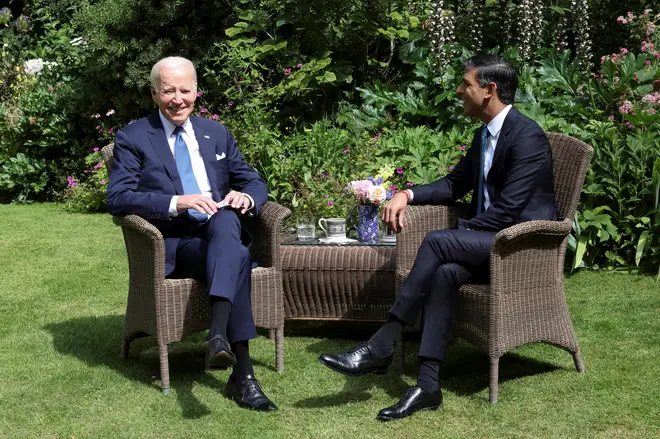
The meeting comes ahead of a Nato summit in Lithuania later this week - with allies questioning the US’s decision to send cluster bombs to support the country in its defence against Russia’s invasion.
Rishi Sunak has not directly criticised Mr Biden over cluster bombs but the Government has reiterated the UK stance of being signed up to the Convention on Cluster Munitions, an international treaty which bans the production or use of the weapons.

Nato partner nation New Zealand said on Sunday the munitions could cause "huge damage to innocent people".
Cluster bombs typically release lots of smaller bomblets that can kill indiscriminately over a wide area - unexploded bomblets can linger on the ground for years before they detonate, potentially injuring or killing people long after conflicts have ended.
Mr Biden landed at Stansted Airport on Sunday evening to begin his trip to the UK.
The President landed in the UK just after 10pm aboard Air Force One.
He was then ferried to the Presidential Helicopter, Marine One, which carried him to the residence of the US ambassador to the UK, where he will spend the night.
During his two-day trip, he is due to hold crunch talks in Downing Street about the war in Ukraine - after confirming on Friday that the United States would send cluster munitions to Ukraine. He will also meet King Charles at Windsor Castle.

Justice Secretary Alex Chalk joins Nick Ferrari
Prime Minister Rishi Sunak reiterated the UK's opposition to the use of such weapons over the weekend.
Cluster munitions can kill indiscriminately, hitting civilians as well as soldiers, and can remain a danger for decades after the end of a war.
More than 100 countries including the UK have banned their use.
Speaking on LBC's Nick Ferrari at Breakfast, Lord Chancellor Alex Chalk said: "Our legal position is that we’ve signed up to the international convention which means that we will neither make, use nor store them.
"The United States is not a signatory to that convention, nor is Ukraine, so there may well be a sensible and open discussion about that."
He explained: "Cluster bombs are a particular type of munition that detonate before they strike the ground and the concern is that some of those bomblets don’t explode and so that means you have contaminated land and there is a real risk to civilians.
"The land that would be bombed by Ukraine is Ukraine which of course is different from normal circumstances.
"These are unusual circumstances, Ukraine is in a fight for its survival against appalling behaviour by Russia and so these are part of the wider considerations.
"But the UK's position is very clear - we won't use them and we won't store them or supply them."
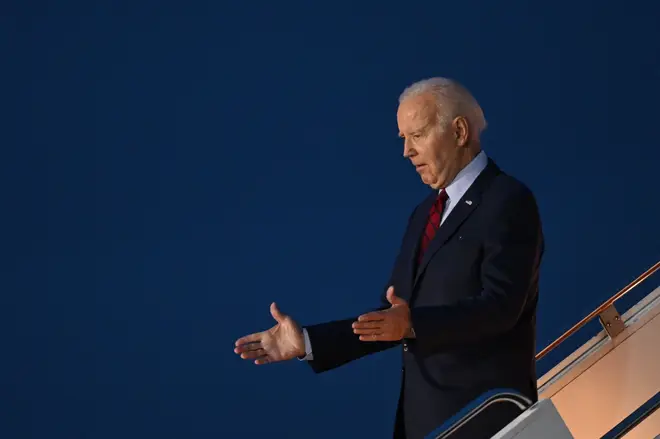
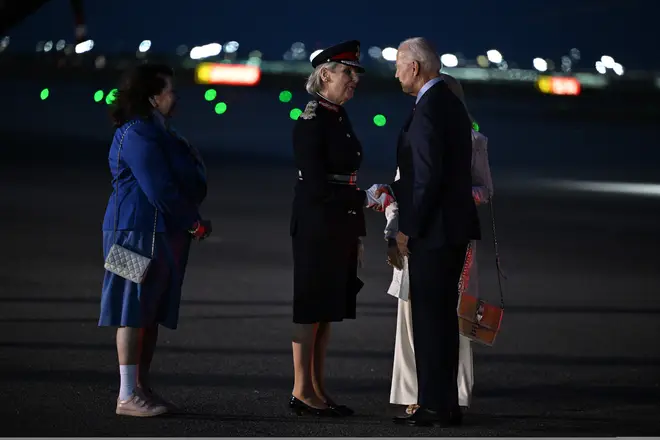
Mr Sunak previously said the UK was providing tanks and long-range weapons to Ukraine instead.
"We will continue to do our part to support Ukraine against Russia's illegal and unprovoked invasion, but we've done that by providing heavy battle tanks and most recently long-range weapons, and hopefully all countries can continue to support Ukraine," he said.
Ukraine has been asking the US for the weapons - which are banned in more than 100 countries - for some time as it suffers from a shortage of ammunition.
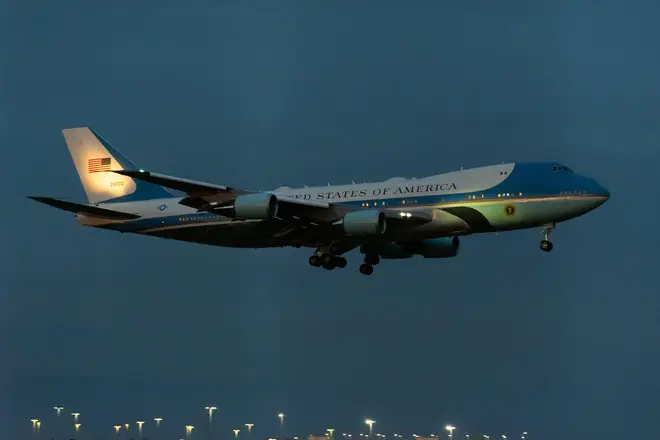
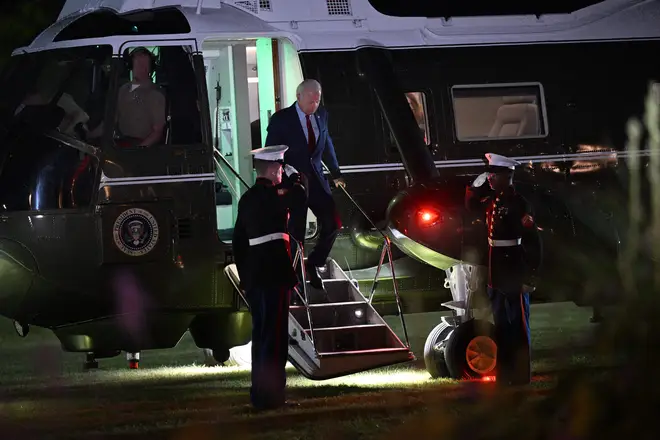
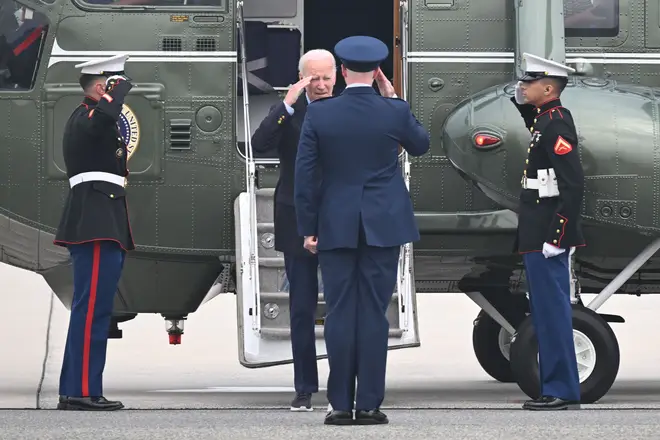
President Biden is stopping off in the UK on the way to the NATO summit in Lithuania.
He told US broadcaster CNN ahead of the trip that war-ravaged Ukraine is "not ready" for NATO membership, adding that Russia's war on the country needs to end before Kyiv can be considered.
A key tenet of NATO is Article 5 of its constitution - which posits that an attack on one member nation is considered an attack on the entire Alliance.
There have been questions in recent months over whether Ukraine joining while the war was ongoing could trigger Article 5 and lead to a direct conflict between Russia and NATO, including the UK and US.
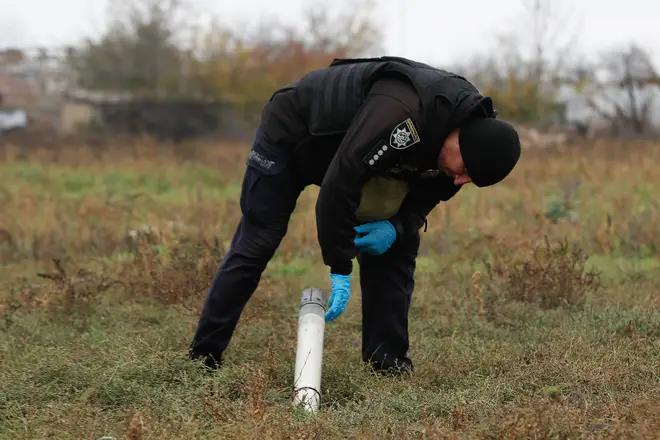
The White House said in a statement: "Russia's act of barbarism is causing untold suffering to millions of people.
"It's right that we collectively stand up to it and I'll be heading off to the Nato summit next week in Vilnius, where we will be discussing exactly this with our allies how we can strengthen our support for Ukraine."
Defending the decision to send cluster bombs to Ukraine, the White House said Russia had already used similar weapons, and that Kyiv had committed to clearing up unexploded bomblets after the war.
National Security Adviser Jake Sullivan said on Friday: "Ukraine has committed to post-conflict demining efforts to mitigate any potential harm to civilians and this will be necessary regardless of whether the United States provides these munitions or not because of Russia's widespread use of cluster munitions"
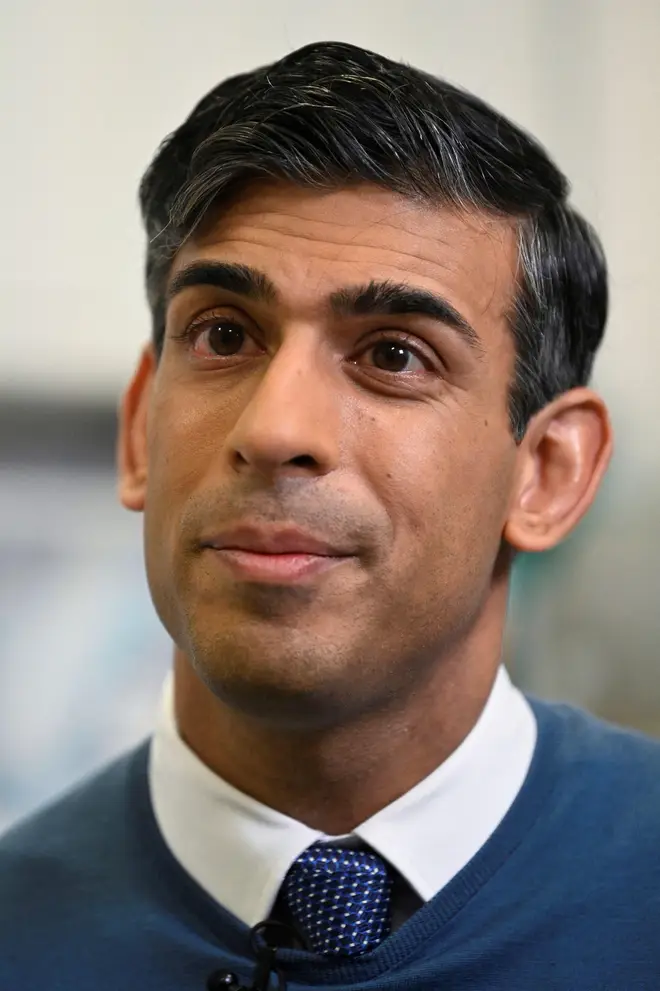
"Ukraine would not be using these munitions in some foreign land. This is their country they're defending."
He added: "We are not looking to start World War Three."
The weapons package is believed to be worth around $800m.
Read More: Nato leaders to offer Ukraine major support package but not membership for now
The US had previously been cautious to grant Ukrainian wishes as the weapons have the potential to kill indiscriminately, putting civilians at risk.
The weapons were first developed during the Second World War.
Unexploded bomblets have the potential to live in the ground for several years and can detonate unexpectedly.
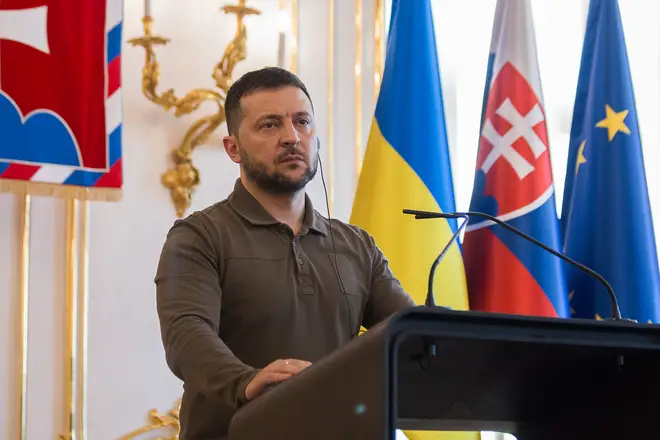
The Pentagon said Russia has experienced high failure rates with the weapons.
The UN says Ukraine has also used the weapons, which it denies.
Colin H. Kahl, undersecretary of defense for policy, said: "We will be able to provide Ukraine with extra artillerly immediately.
"Russia has been using cluster munitions since the start of the war.
"The munitions we will provide Ukriane will have a dud rate of below 2.35%.
"We are working with Ukraine to reduce the risks associated with these weapons."